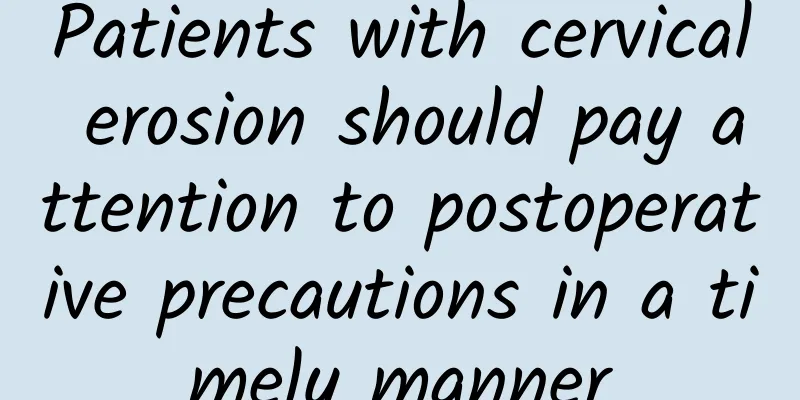Effective nursing methods for amenorrhea after artificial abortion

|
Artificial abortion for female diseases is more common in gynecological and obstetric surgery and is a remedial measure for family planning. In recent years, the tremendous progress in economic level has led to the improvement of medical technology. In addition, the public's requirements for the quality and comfort of medical services have increased. Painless abortion surgery under anesthesia is more acceptable to patients. For the sake of women's physical health and harmonious family life in the future, our female friends should pay more attention to and learn more. First, the patient's uterus suffered great damage after the operation. Secondly, the patient's continuous strong emotional fluctuations will cause central nervous system disorders, endocrine disorders, and amenorrhea. For some unmarried women, they bear huge psychological pressure before and after the operation. They are worried about being known by relatives and friends, and they are also worried about the pain caused by the operation, and even affecting their future fertility. Therefore, from unexpected pregnancy to before abortion, they have long-term psychological stress reactions such as mental tension, anxiety, and depression. These reactions can easily lead to endocrine dysfunction and cause amenorrhea. The care of amenorrhea after painless abortion starts from the following three aspects: The first is psychological intervention: a healthy mental state can achieve a good birth control effect, and positive psychological counseling and a good mentality may reduce the complications caused by birth control surgery to a certain extent, and mental health is of great significance to birth control surgery and postoperative rehabilitation. Therefore, from the above perspectives, it can be seen that positive psychological intervention has a practical auxiliary value in reducing the complications of painless abortion, and the requirement is amenorrhea. Psychological counseling is carried out in a targeted manner for patients undergoing abortion surgery in different situations and their mentality. For unmarried people, because this group of people is still young, ignorant, and has little social experience, they don’t know much about general contraceptive knowledge, and often have fear of sudden pregnancy, worrying that the school, relatives and friends will know. More care and love should be given to such patients. During the treatment, the mother’s tone and posture should be used to talk and perform the operation, so that they can feel warm and then trust the nursing staff and the operation; for married but childless people, most of these people choose abortion due to emotional breakdown, breakup with their partner and divorce, and some have to have abortions due to concerns about fetal development due to medication history. Depression, loss, grief, etc. are common psychological problems for this group of people. The second is health education: postoperative health education focuses on contraception and uterine hygiene. After surgery, patients should be reminded to refrain from sexual intercourse and tub bathing within one month, and to remember contraception. It is recommended that they wait one year after surgery before getting pregnant so that the uterus and birth canal can get enough rest time. During the period when the cervix is not completely closed, the sanitation of the vulva should be strictly ensured, and underwear and sanitary products should be changed and washed frequently. It is best not to take a sitz bath to avoid bath water entering the vagina and causing infection. The third is dietary intervention. Patients are advised to eat more high-protein and vitamin-rich foods to enhance their body immunity. Amenorrhea after painless abortion is mainly directly related to endometrial damage, postoperative reproductive system infection, and patient psychological factors. The mechanical damage to the endometrium caused by surgery can easily lead to intrauterine adhesions. Long-term intrauterine adhesions can lead to adhesion fibrosis and difficulty in separation, which in turn leads to secondary infertility. Therefore, from the perspective of reproductive safety, women of childbearing age should first take contraception seriously, take effective contraceptive measures, and avoid damaging surgeries such as artificial abortion. For nursing staff, strengthening intervention from the perspectives of patient psychological care and health knowledge education will help significantly reduce postoperative complications and improve rehabilitation effects. I hope that women can pay more attention to their bodies and take better care of their health in life. I wish you a happy family and good health. |
<<: Can women with amenorrhea be cured?
>>: Dietary care for patients with amenorrhea
Recommend
Endometriosis test items
Normally, if a woman suffers from endometriosis, ...
What to do if vulvar itching recurs
There are many treatments for recurrent vulvar pr...
Is pelvic effusion 4.5x2.5 cm serious?
Pelvic effusion is 4.5x2.5cm, which means the amo...
What causes ovarian cysts?
What causes ovarian cysts? There are many factors...
What foods should women avoid during the recovery period after abortion?
After undergoing an abortion, women should pay at...
Losing weight is not difficult, you can do it by maintaining 3 light lifestyle habits!
Losing weight is easy by living a lighter life! L...
Does pelvic effusion require medication?
Does pelvic effusion need to be treated with medi...
What are the basic symptoms of irregular menstruation?
What are the symptoms of irregular menstruation? ...
Abdominal pain is the most common symptom of ovarian cysts
Ovarian cysts are generally the most common disea...
Can I get pregnant if I have had cervical precancer?
Every woman has the dream of becoming a mother an...
Get rid of those annoying elephant legs! Towel stretching exercises to sculpt your body
Sitting still every day not only makes your butto...
Pelvic inflammatory disease usually causes pain in three places
Pelvic inflammatory disease is a common inflammat...
Cucumber and egg weight loss method! Healthy weight loss and beauty
Cucumbers and eggs are both good products for wei...
What to eat for premature ovarian failure and hair loss
What should I eat if I suffer from premature ovar...
What are the common factors that cause dysmenorrhea?
Dysmenorrhea is something that female friends oft...









